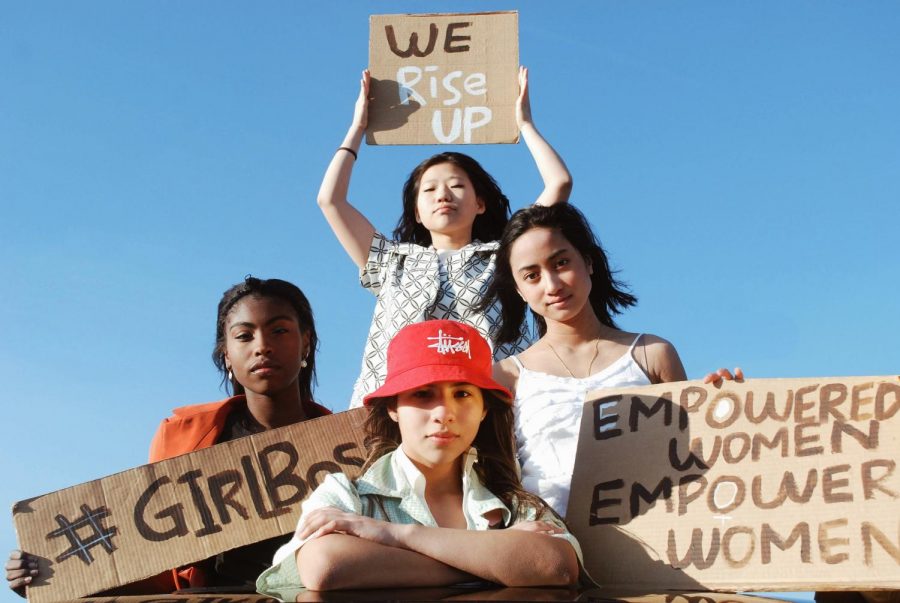The Centenary of Women’s Rights to Vote Draws to Attention that Change is Still Needed
September 3, 2020
Aug 18 marks the 100 anniversary of the women’s right to vote in the United States and the passing of the 19th Amendment. This momentous holiday does not just represent women’s right to vote, but the start of men and women becoming equal in the eyes of society, the government, and the world. By marching and fighting for decades, the women’s suffrage movement ruptured the barriers built against them. However, the 19th Amendment did not include suffrage rights for Black women and minorities–despite their immense involvement in demonstrations. Black women and other minorities’ rights were not deemed necessary in the eyes of society and the government. Society has come a long way, but we must continue to venture for equality for every woman, no matter their race. The suffrage movement has engineered an extensive amount of reform, but there is much more to accomplish.
According to National Geographic, “When it comes to the story of women’s suffrage and the 19th Amendment, two competing myths dominate. The first is that when the Amendment became law in 1920, all American women won the vote. The second is that no Black American women gained the vote that year… Black women were often barred from polls through much of the 20th century; Native American and Asian American women faced citizenship bars for many years.” Although many obstacles had fallen, there were still countless hurdles. The Voting Rights Act, which allowed people of color to vote, wasn’t passed until 1965.
“I think it is very important to keep in mind that yes, women being able to vote is amazing, but the anniversary only celebrates white women being able to vote. Women of color could not vote until nearly 50 years later,” junior Annaluna Giacich said. White women received the right to vote, but women classified as minorities never got the chance until later on. People would and still do, try to muscle up reasons that women are ill-equipped to share or have different viewpoints.
Exposing the desolate reality of the past is upsetting, but there is still lots to commemorate. As we mark the centennial of this anniversary, we mark a moment of change.
“This anniversary is important to me personally because not only am I a woman in America, but my grandmother fought for the vote for years, and women are still not considered equal to men in our society. The suffrage movement inspires women today, myself included, to fight for equal treatment and opportunity for women in American culture,” junior Kiara Kofoed said.
Although we are not where we should be, women’s continuous fight has a lasting effect.
“The beginnings of true democracy began when the 19th Amendment was ratified. Women, until 1920, were disenfranchised and had no say in politics despite making up half the population. Women’s voices were heard when they were granted voting rights, and that is definitely something to celebrate,” junior Tom Inouye said.
The battle for equality spreads across a multitude of movements such as the Black Lives Matter movement and L.G.B.T.Q.I.A+ rights. Because of women’s right to vote, women can hold government positions and jobs that were not available before.
According to the National Women’s Law Center, “Women made great strides in political representation in 2018. There is significant media attention devoted to the historic gains women made in Congress, but the shift in political representation of the states was equally significant. Women’s representation in state legislatures increased by more than three points in 2018 (from 25.4 percent to 28.9 percent of all state legislative seats).”
By having women in leadership roles, we are furthering the possibilities of many people’s ideal future, that every man, woman, race, and sexual identity, are equal. Celebrating the 100 anniversary makes people realize the strides we have made and the change that must still be done.








